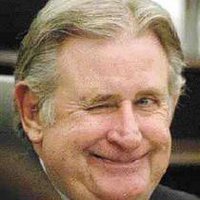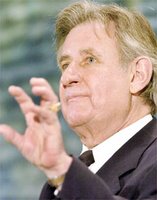I came across this interesting blog If There Is Hope and the authors article on a Marxist interpretation of captialist development in Canada as a counter to the concensus view of the Left Nationalists in Canada whose see the development of capitalism as incomplete and under colonial domination, first by Britain then the United States.
His article coincides with my thesis on Western Canadian development and the radical movement of industrial workers and farmers in the West.
See:
It is intersting to note that the movement for integration with the United States which the Council of Canadian CEO's has been advocating recently was also a political blip back in pre-Confederation Canada. And like today it was a minority of the wealthy pushing for it. a group of leading merchants based in Lower Canada published the Annexationist Manifesto calling on the US to annex Canada.The movement gained little popular support, and disappeared as economic prospects improved in 1850. As Marx liked to say; Merde, Merde, the same old Merde comes around again.
Confederation and Imperialism
by Doug Nesbitt
August, 2005
Confederation in 1867 was the result of many intersecting interests from several different sections of the Canadian ruling class. Ryerson describes two main pressures, first from the rising industrial bourgeoisie, and secondly from imperial interests in Great Britain. Regarding the former, Ryerson describes the industrial bourgeoisie as "[r]equiring a state of their own, under their control, capable of providing a favorable framework for the home market and for securing terms for borrowing abroad..." [25]
Protection had already been sought by industrialists, beginning with agitation in the 1840s. By 1858, Isaac Buchanan, a leading Canadian capitalist, had organized the Association for the Promotion of Canadian Industry, and had helped bring about a protective tariff in that same year. When tariffs were reduced in 1866, Buchanan's organization met again. John A. MacDonald was already praising protection in 1861, and make tariff protection a key plank in his campaigns for Prime Minister.[26]
The second pressure, British interest in confederation, appears to be contradict their own imperial interests. However, the British desired a colony capable of withstanding a naval blockade and isolation. This entailed a diversified, self-sufficient economy, and was a strategic, long-term goal beginning in the 1790s, and accelerating in the aftermath of the War of 1812. At the height of the American Civil War, British military and strategic concerns were raised again, and therefore, no serious objection was made to Canadian confederation.
The merchants themselves had declined in importance by the time of Confederation, contrary to the claims of left nationalist historians. As previously mentioned, the 1850s railway boom was the last bid for continued economic power by the merchant class. Its power had been crumbling for over a decade prior.
The two rebellions in 1837-8 led to a decade of British intervention and pressure to dismantle the political system which had entrenched mercantile interests.[27] The 1840s also marked the end of Britain's mercantile system that had protected Canada's staple export market. South of the border, the American economy was unified by an earlier railway boom and industrialization threatened the interests of merchant class, especially those in Montreal. The merchants began to panic.
The same year that Hincks introduced the Guarantees Act, a group of leading merchants based in Lower Canada published the Annexationist Manifesto calling on the US to annex Canada.[28] The movement gained little popular support, and disappeared as economic prospects improved in 1850. In the following years, the merchant class, heavily invested in the transport industry, began to rely on the home market and the power of the state in order to survive. This necessitated the protection of the home market and a more powerful state.
After several years of serious negotiations, Confederation came into being in 1867 in order to meet the interests of merchants, industrialists and imperialists. The first task of the new Canadian state was to complete the Intercolonial Railway, tying New Brunswick and Nova Scotia to Quebec and Ontario. It also called for a rapid westward expansion and a railway that reached the Pacific Ocean. This would satisfy both merchants and industrialists. The other task was the protection of industry through tariffs. Prime Minister MacDonald's 1879 "National Policy" was the first explicit strategic policy of the Canadian state and called for two courses of action: railways and tariffs. Both courses of action were already well underway by the time it was articulated in MacDonald's campaign policies.
It did not take long for the actions of the new Canadian state to reflect its nature. The railway proved a potent weapon capable of shipping troops with great speed to Manitoba and Saskatchewan in order to conquer the Métis in 1885. Aboriginals were quickly rounded up and imprisoned in reserves. The formation of the the North West Mounted Police served the role as the armed wing of the state in the west, and continues today as one of the state's key forces of repression and violence.
One constant remained during the economic and political upheavals of the 19th century: the oppression of Quebec. Quebec was systematically denied self-determination as domestic and British ruling classes kept the feudal system in place until 1854, despite several disastrous crop failures, soil exhaustion and a bloody rebellion.[29] Even before Confederation, it was clear that national oppression coincided with interests of the domestic ruling classes. National oppression retarded Quebec's economic growth as Ontario became the economic centre by the 1860s.
Through the development of a home market, and the growth of industry, Canada also witnessed the rapid growth of a modern urban working class, ushering in a new age of class conflict.
Find blog posts, photos, events and more off-site about:
capitalism, imperialism, Canada, CPR, Railways, industrialization, working, class, proletariat, labour, labor, unions,


